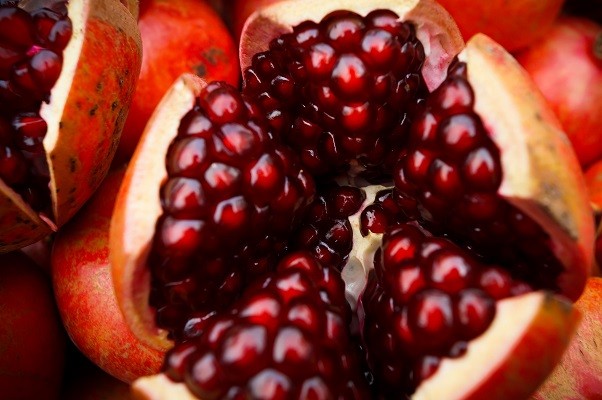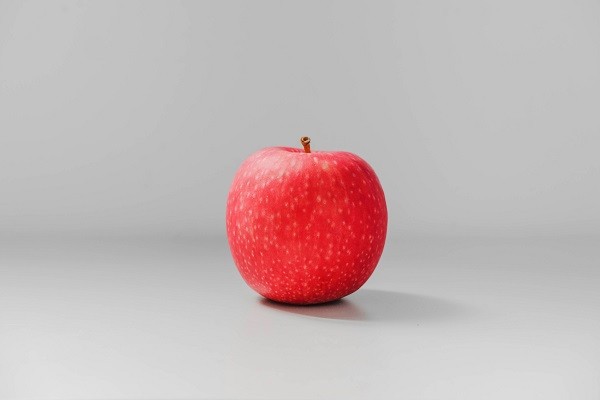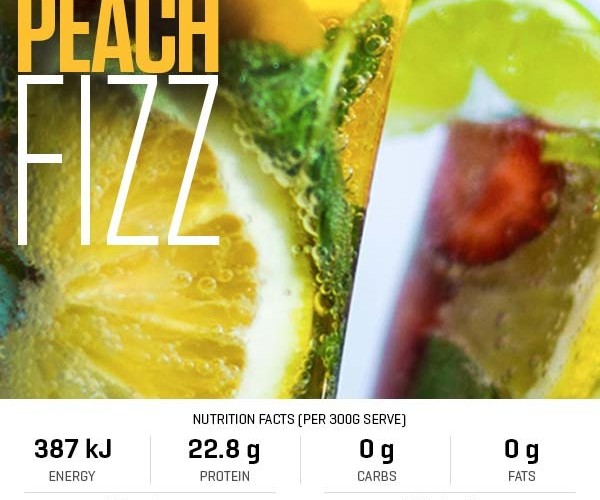Is Fruit Safe to Eat Because of Fructose?

Fruit is safe to eat, here's why.
It's quite incredible that untruths like this can be spread; confusing the public into what is healthy and what isn't.
So where does it all stem from?
Blame it on the sugar bashing. Because sugar is made up of a glucose molecule and a fructose molecule (called sucrose) people started seeking notoriety by saying that fruit, which contains fructose (aka fruit sugar) is also bad.
For starters, sugar is NOT the evil and toxic devil it can be made out to be, as detailed scientifically within this Bulk Nutrients article: Gimme some sugar... or maybe don't?.
And that goes for fructose too, particularly given the context in which it's found within fruit.
Fructose is safe and not harmful in the right context
Firstly, fructose has been found to suppress our appetites. The notion it causes us to overeat and gain weight is bogus.
The studies that linked fructose to overeating in humans... were actually done in rats. Like this one, that gave subjects 30% of their daily intake from FREE fructose.
And here's the problem; free fructose is near impossible to consume in our diets.
In sugar, fructose is not "free fructose", it comes with a molecule of glucose as we discussed. And in fruit, fructose comes with fibre.
And the fact that fructose within fruit comes with fibre means it is delivered to your liver so slowly that it IS NOT hazardous to your health. The fibre essentially slows down the delivery of fructose.
Moreover, an extensive review in 2014 declared:
"Based on a thorough review of the literature, we demonstrate that fructose, as commonly consumed in mixed carbohydrate sources, does not exert specific metabolic effects that can account for an increase in body weight."
And another study in 2020 further showed what a fallacy the "fruit is unhealthy and makes you fat" line of thinking is.
The researchers put healthy humans on 150 grams of fructose per day for 8 weeks to see what would happen!
And what did they find?
NO increases in body fat, no increase in fat deposition in the liver, and they didn't eat any more calories (ie, it didn't make them hungrier).
Of course, very few people will actually have 150 grams of fructose per day. For context, an apple contains only 2 grams of fibre!
But if we did consume that much fructose, the researchers noted: "...young, metabolically healthy subjects can at least temporarily compensate for increased fructose intake."
So that's a little bit of what WON'T happen if you eat fruit. But what about the potential benefits if you DO eat fruit?

The benefits of fruit for health
Fruit contains a lot of vitamins, particularly vitamins C and A, minerals, electrolytes, and antioxidants, and thus an important part of a healthy diet.
Moreover, fruit contains a lot of fibre, which is important for optimal health. Research shows adequate fibre reduces our risk for developing:
- Coronary heart disease
- Stroke
- Hypertension
- Diabetes
- Obesity
Moreover, adequate fibre helps to lower blood pressure and serum cholesterol levels. Fruit intake has also been shown to help us age better, too.
How much fibre is in certain fruits?
Here are some fruits and their total fibre content:
- Apple, unpeeled - 2.0 grams
- Kiwi - 3.39 grams
- Mango - 1.80 grams
- Pineapple - 1.20 grams
- Pomegranate - 0.60 grams
- Watermelon - 0.50 grams
- Grapes - 1.2 grams
- Oranges - 1.8 grams
- Plums - 1.6 grams
- Strawberry - 2.2 grams
- Bananas - 1.7 grams
- Peach - 1.9 grams
- Pear - 3.0 grams
And how much fibre do we need? New recommendations state 50 grams per day.
Fibre helps us lose weight, too.
Moreover, the fibre within fruit can also help us lose weight, due to the following:
- Fibre delays the time for food to pass through your stomach, thus keeping you full
- It encourages the growth of a more favourable gut microbiome, which is linked to lower long-term weight gain
- Scientists declare fibre allows for "an increased ease of weight loss".

The bottom line is that fruit is healthy and is NOT bad for us. The studies into fructose (found within fruit) that caused humans to overeat, were out of context. They were done with free fructose that isn't found in either sugar or fruit, due to fruit's additional fibre.
Healthy young subjects can have up to 150 grams of fructose a day with no obvious health or weight complications. Fruit boasts many vitamins, particularly vitamins C and A, minerals, electrolytes, antioxidants, and fibre, which helps us prevent many diseases, help us lose weight, and might help us age better, too.
Fruit is not unhealthy by any measurement and should play a key role in a diet aimed to maximise health.
References:
- Anderson JW, Baird P, Davis RH Jr, Ferreri S, Knudtson M, Koraym A, Waters V, Williams CL. Health benefits of dietary fiber. Nutr Rev. 2009 Apr;67(4):188-205. doi: 10.1111/j.1753-4887.2009.00189.x. PMID: 19335713.
- Dhingra D, Michael M, Rajput H, Patil RT. Dietary fibre in foods: a review. J Food Sci Technol. 2012;49(3):255-266. doi:10.1007/s13197-011-0365-5
- Jebb SA. Dietary determinants of obesity. Obes Rev. 2007 Mar;8 Suppl 1:93-7. doi: 10.1111/j.1467-789X.2007.00326.x. PMID: 17316310.
- Jebb SA. Dietary determinants of obesity. Obes Rev. 2007 Mar;8 Suppl 1:93-7. doi: 10.1111/j.1467-789X.2007.00326.x. PMID: 17316310.
- Lattimer JM, Haub MD. Effects of dietary fiber and its components on metabolic health. Nutrients. 2010;2(12):1266-1289. doi:10.3390/nu2121266
- Melanson KJ, Angelopoulos TJ, Nguyen V, Zukley L, Lowndes J, Rippe JM. High-fructose corn syrup, energy intake, and appetite regulation. Am J Clin Nutr. 2008 Dec;88(6):1738S-1744S. doi: 10.3945/ajcn.2008.25825E. PMID: 19064539.
- Menni C, Jackson MA, Pallister T, Steves CJ, Spector TD, Valdes AM. Gut microbiome diversity and high-fibre intake are related to lower long-term weight gain. Int J Obes (Lond). 2017 Jul;41(7):1099-1105. doi: 10.1038/ijo.2017.66. Epub 2017 Mar 13. PMID: 28286339; PMCID: PMC5500185.
- National Center for Biotechnology Information (2021). PubChem Compound Summary for CID 5988, Sucrose. Retrieved September 17, 2021 from https://pubchem.ncbi.nlm.nih.gov/compound/Sucrose.
- O'Keefe SJD. The Need to Reassess Dietary Fiber Requirements in Healthy and Critically Ill Patients. Gastroenterol Clin North Am. 2018;47(1):219-229. doi:10.1016/j.gtc.2017.10.005
- Slavin JL, Lloyd B. Health benefits of fruits and vegetables. Adv Nutr. 2012;3(4):506-516. Published 2012 Jul 1. doi:10.3945/an.112.002154
- Veronese N, Solmi M, Caruso MG, Giannelli G, Osella AR, Evangelou E, Maggi S, Fontana L, Stubbs B, Tzoulaki I. Dietary fiber and health outcomes: an umbrella review of systematic reviews and meta-analyses. Am J Clin Nutr. 2018 Mar 1;107(3):436-444. doi: 10.1093/ajcn/nqx082. PMID: 29566200.














































